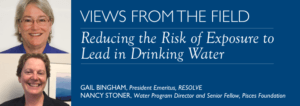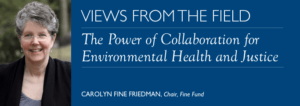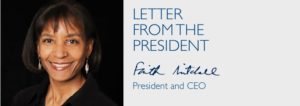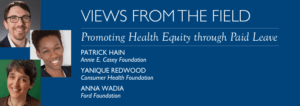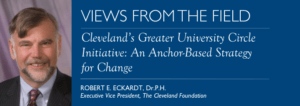Upcoming Events
Past Events
Latest Resources
2017 Annual Conference on Health Philanthropy Plenary Remarks: Diane Rowland
Diane Rowland, Executive Vice President at The Henry J. Kaiser Family Foundation, explores how foundations can help meet the challenges of health care coverage, and the consequences of being uninsured. Listen to the podcast of her speech delivered at the 2017 GIH Annual Conference on Health Philanthropy.
2017 Annual Conference on Health Philanthropy Plenary Remarks: Judy Belk
Judy Belk, President and Chief Executive Officer of The California Wellness Foundation, inspires and challenges us as she encourages us to have candid discussions about philanthropy’s role in these complex times. Listen to the podcast of her speech delivered at the 2017 GIH Annual Conference on Health Philanthropy:
Leading with Vision
Do we aspire to be the healthiest community in the state? Think bigger. Do we aspire to be the healthiest community in the nation? Keep going. Some days I ask myself if it is grandiose to hold a pie-in-the-sky vision during changing, uncertain times.
Reducing the Risk of Exposure to Lead in Drinking Water
Ensuring access to sufficient, safe drinking water has been an essential function of water utilities, public health, and health care professionals around the world for more than a century. The public health community is often on the front lines, responding to elevated blood lead levels—and can speak to the need for prevention.
The Power of Collaboration for Environmental Health and Justice
Eboni Cochran knows when there has been a chemical release from one of the manufacturing facilities near her home in west Louisville, Kentucky. Not because of a warning siren, but because she smells it, then feels the symptoms almost immediately: sinus pain, headache, trouble breathing.
Healthy Water, Healthy People
When it comes to our health, we tend to take water for granted. But as we have been reminded recently, failures within our fragile water systems can quickly become public health disasters. What is worse is that the people who are hit hardest typically live in our most vulnerable communities.
2016 Lauren LeRoy Health Policy Lecture: Manuel Pastor
Manuel Pastor, Professor of Sociology and American Studies and Ethnicity at the University of Southern California and director of both the Program for Environmental and Regional Equity and the Center for the Study of Immigrant Integration, discusses demographic, economic, and political changes occurring in the United States and explores how social equity movements are emerging in response to these trends.
Promoting Health Equity through Paid Leave
Universal paid family and medical leave promotes health equity by improving health and well-being across the life span and reducing socioeconomic disparities.
Cleveland’s Greater University Circle Initiative: An Anchor-Based Strategy for Change
Cities are increasingly turning to their “anchor” institutions as drivers of economic development, harnessing the power of these major economic players to benefit urban neighborhoods. This is especially true for cities that are struggling with widespread poverty and disinvestment. Urban anchors – typically hospitals and universities – have sometimes isolated themselves from the poor and struggling neighborhoods that surround them. But this is changing.
Connect With Funder Peers on Health Equity
Interested in exchanging strategies, information, and questions with your funder peers? Sign up for GIH E-Forums.
Strengthen your knowledge, skills, and capacity.
GIH focuses our programming around five areas that are critical to achieving better health for all.
We invite you to explore the resources available on our focus areas pages, browse content in more specific issue areas, and to connect with GIH staff to discuss how we can partner and support your work.

